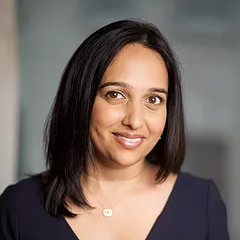The Conference Board Middle East and North Africa Briefs
2019
-
Q&A with Reeta Roy: Building a Generation of Entrepreneurs in Ghana
October 07 | Alex Parkinson, Former Communications Institute Co-Leader, The Conference Board | Reeta Roy, President and CEO, Mastercard Foundation | Comments (0)What are the hallmarks of an effective program to promote youth education in Africa? According to Reeta Roy, CEO and President of the Mastercard Foundation, no one organization can address the issue alone—partnerships are critical. Achieving bold transformation means bringing together the right leaders and organizations to build on existing momentum in countries like Ghana.
-
Cost of Frequent Mega Disasters Raising the Stakes for Corporations
September 30 | Kitty Dumas, Manager, Ryder Charitable Foundation | Comments (0)Corporations are critical to disaster philanthropy, not just because of the dollars they provide. They are often more nimble than governments in reacting to disasters, providing dollars and services minus the red tape. The Ryder Charitable Foundation, a Disaster Responder member of the Red Cross Annual Disaster Giving Program, is taking the lessons of 25 years in disaster philanthropy and applying them to recent challenges.
-
Making Intangibles Tangible: The Benefits of Measuring Intangible Assets
September 26 | Dr. James Gregory, Senior Fellow, The Conference Board | Comments (0)There are certain basic concepts, such as intangible assets, that as a manager you should know well. Why? Because intangibles are meaningful and material to your business at many different levels, and yet you cannot rely on accounting to help manage them because intangibles are not on your company’s balance sheet unless they have been acquired.
-
Beyond the Usual Suspects: Community Feedback for Funders
September 24 | Seema Shah, Founder and Principal, CommVeda | Comments (0)Become a funder and suddenly you're the funniest, smartest, and best-looking person in the room. But what if a simple joke like this reveals an underlying truth about inherent power dynamics that exist between funders, nonprofits, and constituents? Funders need to realize that the perspectives of individuals and communities who are directly affected by issues can be quite different that those of nonprofits.
-
10 Ways to Improve Your Company’s Disaster Philanthropy
September 16 | Alex Parkinson, Former Communications Institute Co-Leader, The Conference Board | Comments (0)Is your company's disaster philanthropy strategy optimized? September is National Disaster Preparedness Month, the perfect time to review your strategy to ensure that your company is taking a holistic view of disaster preparedness, from long before a disaster hits to long after.
-
Five Ways Nonprofits Can Mitigate Potential Backlash Related To Their Boards and Wealthy Donors
September 09 | Timothy J. McClimon, Former President, American Express Foundation and Senior Vice President, Corporate Social Responsibility, American Express | Comments (0)Can nonprofits' high-profile board members be a liability? Many nonprofits are increasingly reliant on the treasures of wealthy individuals and their foundations to support basic services, programs and overhead. But board members and major donors should be acting in ways that are consistent with the nonprofit's culture and values, and potential issues should be exposed and explored in a thoughtful and transparent manner.
-
Q&A with James Sisco: Managing Social Risks
August 28 | Alex Parkinson, Former Communications Institute Co-Leader, The Conference Board | James R. Sisco, Founder and CEO, ENODO Global | Comments (0)Is your company threatened by population-based activities and negative public perception? Social risks are responsible for the removal of more CEOs in the past three years than in the past 30 years combined. Companies must realize and address their social risk exposure.
-
New WPI Research Reveals Why Feminist Giving is Better
August 21 | Kiersten Marek, Founder, Philanthropy Women | Comments (0)Are women better philanthropists than men? new report from the Women’s Philanthropy Institute (WPI) finds that women’s foundations and funds donors—the vast majority of whom are women—are doing more with less, getting more impact with their philanthropy, and are less likely to be doing it for religious or tax shelter reasons.






.JPG)









